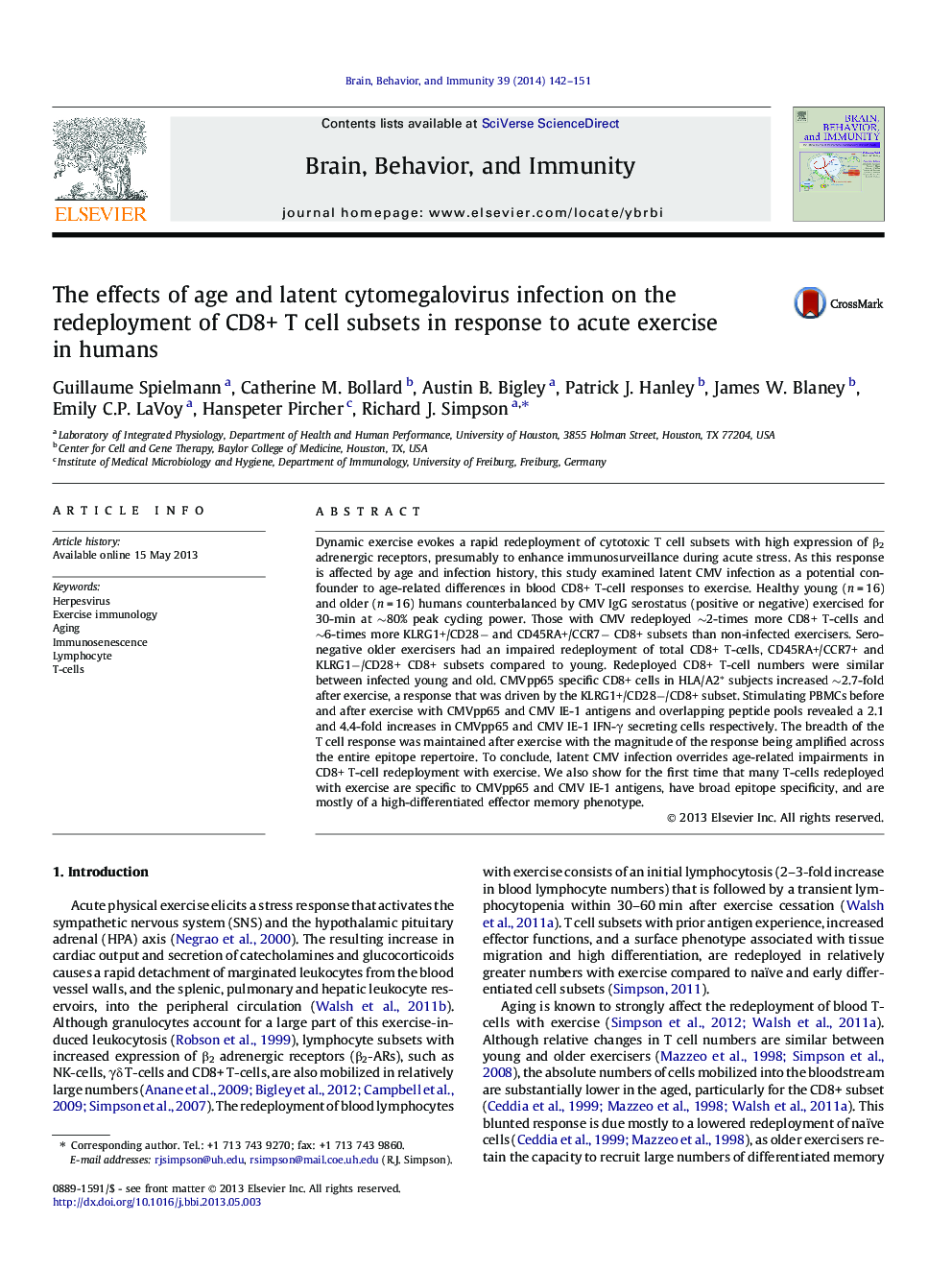| Article ID | Journal | Published Year | Pages | File Type |
|---|---|---|---|---|
| 922061 | Brain, Behavior, and Immunity | 2014 | 10 Pages |
Highlight•Cytomegalovirus (CMV) specific T cells are highly exercise responsive and latent CMV infection overrides age-related impairments in CD8+ T cell redeployment with exercise.
Dynamic exercise evokes a rapid redeployment of cytotoxic T cell subsets with high expression of β2 adrenergic receptors, presumably to enhance immunosurveillance during acute stress. As this response is affected by age and infection history, this study examined latent CMV infection as a potential confounder to age-related differences in blood CD8+ T-cell responses to exercise. Healthy young (n = 16) and older (n = 16) humans counterbalanced by CMV IgG serostatus (positive or negative) exercised for 30-min at ∼80% peak cycling power. Those with CMV redeployed ∼2-times more CD8+ T-cells and ∼6-times more KLRG1+/CD28− and CD45RA+/CCR7− CD8+ subsets than non-infected exercisers. Seronegative older exercisers had an impaired redeployment of total CD8+ T-cells, CD45RA+/CCR7+ and KLRG1−/CD28+ CD8+ subsets compared to young. Redeployed CD8+ T-cell numbers were similar between infected young and old. CMVpp65 specific CD8+ cells in HLA/A2∗ subjects increased ∼2.7-fold after exercise, a response that was driven by the KLRG1+/CD28−/CD8+ subset. Stimulating PBMCs before and after exercise with CMVpp65 and CMV IE-1 antigens and overlapping peptide pools revealed a 2.1 and 4.4-fold increases in CMVpp65 and CMV IE-1 IFN-γ secreting cells respectively. The breadth of the T cell response was maintained after exercise with the magnitude of the response being amplified across the entire epitope repertoire. To conclude, latent CMV infection overrides age-related impairments in CD8+ T-cell redeployment with exercise. We also show for the first time that many T-cells redeployed with exercise are specific to CMVpp65 and CMV IE-1 antigens, have broad epitope specificity, and are mostly of a high-differentiated effector memory phenotype.
